Tokyo isn’t just a city. It’s actually 23 wards, or smaller local municipalities, stuck together. Even simple decisions like where to stay in Tokyo can seem daunting. Fear not fellow traveler! I’ve been traveling to Tokyo for years for school, work, and fun. I’ll break down the details about two major decisions when deciding where to stay in Tokyo: When to go, and what type of accommodations to choose. I’ve also included pictures from my travels to help you decide which of Tokyo’s many facets you want to explore.
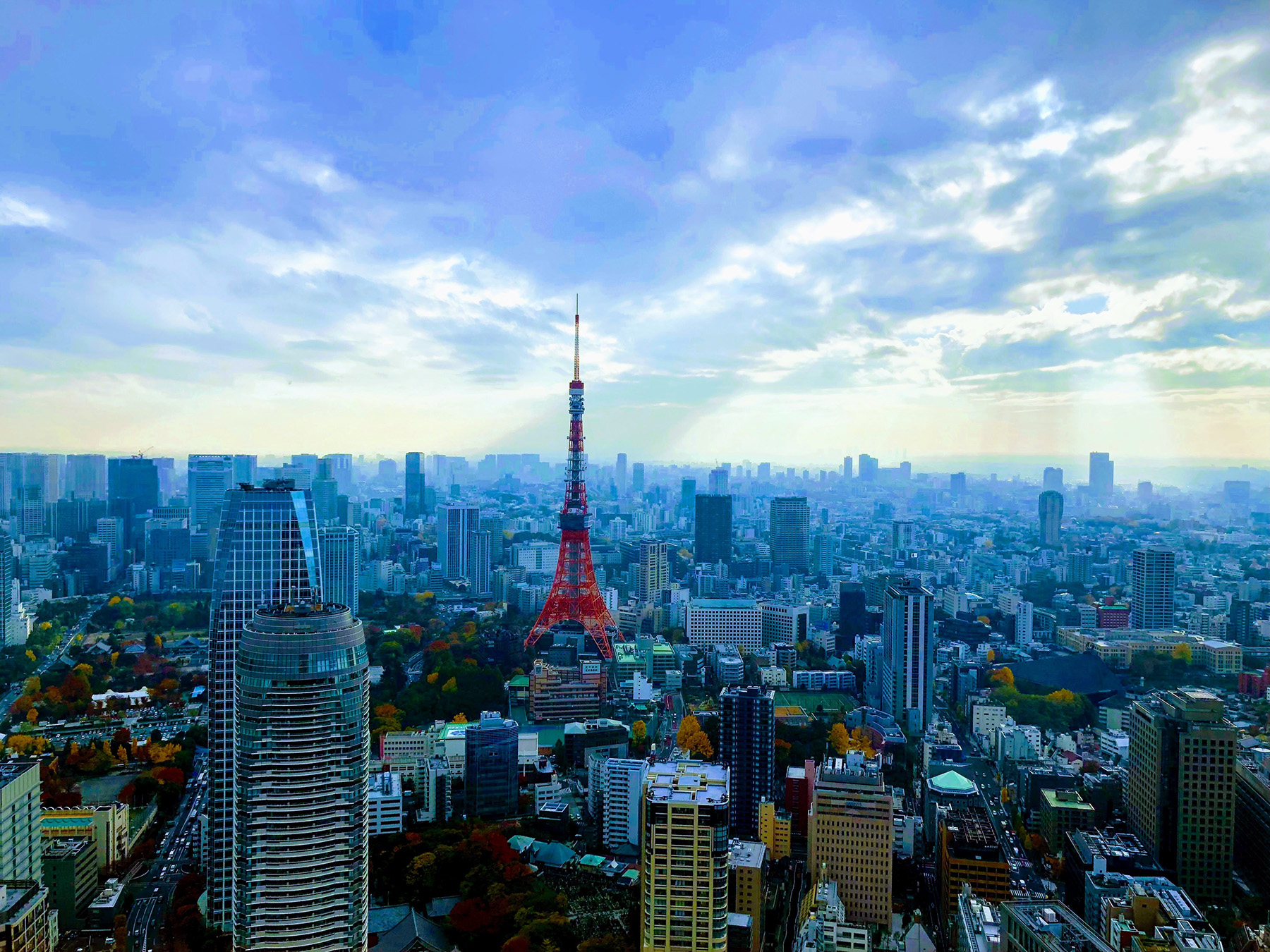
Where to Stay in Tokyo: Decide when before you decide where
If you aren’t sure when to go to Tokyo, or what season might interest you the most you’ll want to do some homework. Japan as a country has all four seasons, though you may find that the extremes – hot and cold – can be harsher. Tokyo is an incredibly dense metropolis, and so you get a lot of shelter from the elements by sticking to the bustle.
Each season has price differences in airfare, hotels, and Airbnb pricing. Going at the right time can cut your trip costs by 40% or more, making Tokyo one of the most affordable international destinations in the world.
Spring is Tokyo’s most expensive season
One of Japan’s most iconic images is the sakura, or cherry blossom. Along with the chrysanthemum, the sakura is considered the national flower of Japan. The beauty of the blossom in full bloom is a spectacle to be sure, and draws tourists to Japan from all over Asia each year. That can make for some really tough price pressure, so can definitely impact where to stay in Tokyo.
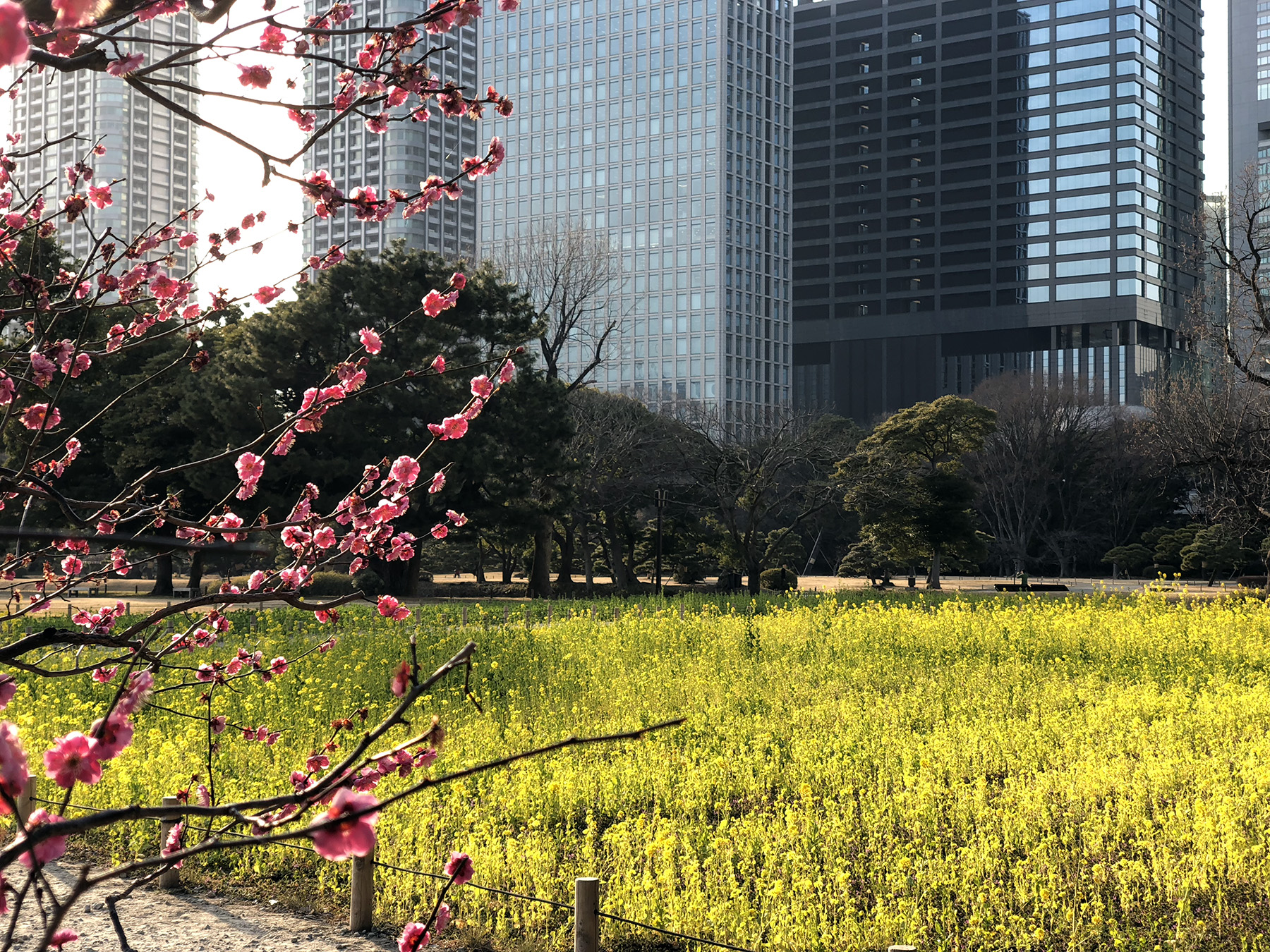
Hotels in Tokyo are the most popular attraction during the spring season, as many overlook large parks dense with cherry blossoms. Though Tokyo is a massive city of buildings, it also contains serene parks, all of which are accessible to the public, many totally free. You should also know about a few key holidays during the spring in Tokyo. Golden Week occurs from April 29 to May 5, and includes several individual days of celebration covering topics like greenery, children, and the government. This week is a national holiday, and ends up being one of the most crowded, expensive, and difficult to manage times for western tourists.
Summer in Tokyo is hot and wet, but enjoyable
Steamy temperatures and frequent rain make summertime in Tokyo more like living in the tropics. Temperatures can routinely stay above 90 degrees Fahrenheit with 90-100% humidity. Just walking around can mean getting drenched in sweat and sticky heat. While that’s not exactly my preference, I have spent many summers in Tokyo and still enjoyed it immensely. During these hot times the Japanese love to cool down with cold beverages from the thousands of vending machines around Tokyo, cold meals like soba noodles, and frozen treats like ice cream and mochi.
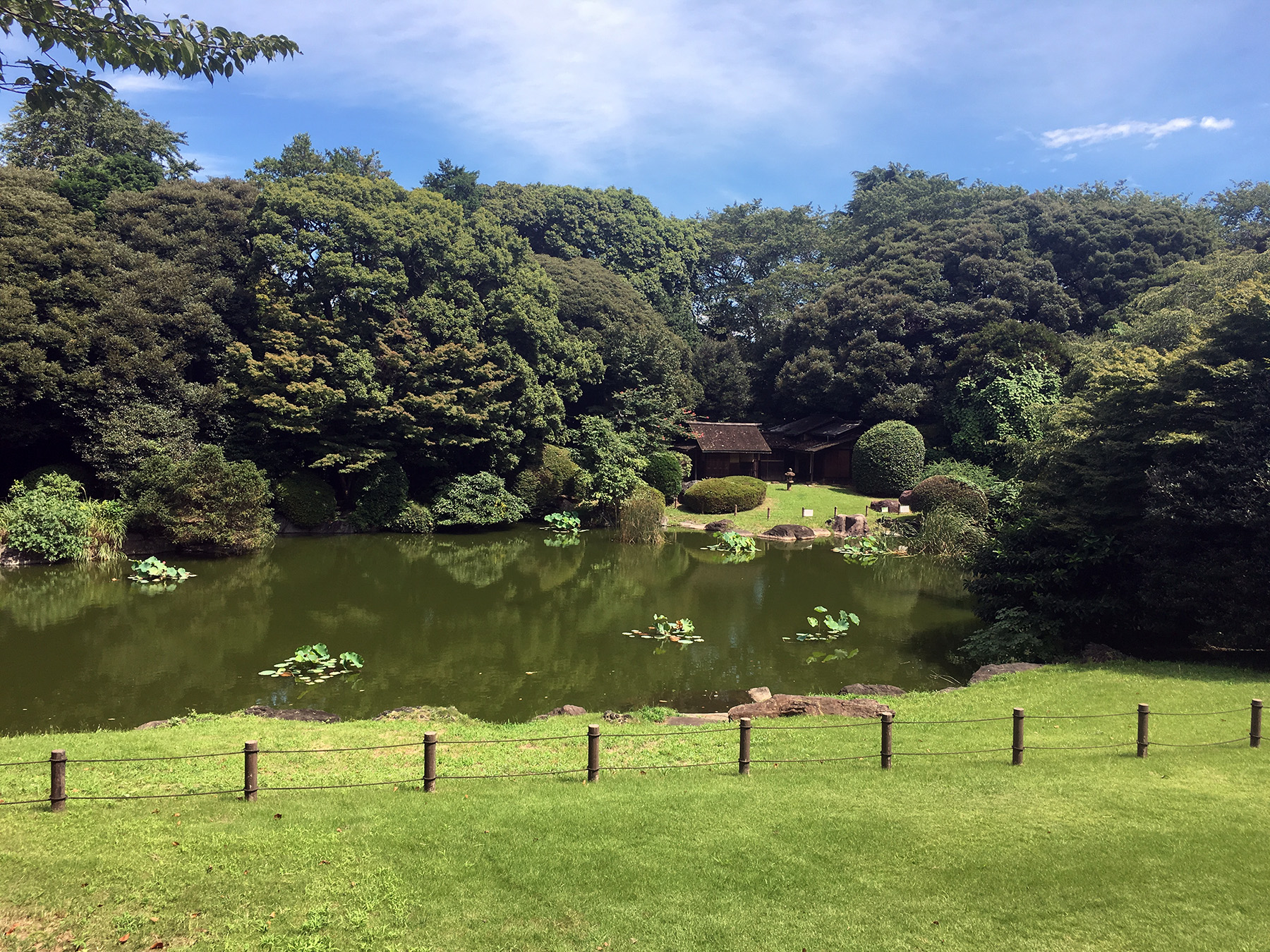
When deciding where to stay in Tokyo during the summer, you may want to pick a location that offers easy access to transit without a lot of walking. You can also enjoy many of Japan’s beautiful parks and indoor museums, which can offer shade from large trees, air conditioning, and a bit of escape from the heat. The high temperatures and humidity should make the Tokyo 2020 Olympics very interesting indeed.
Fall in Tokyo offers changing leaves and flashes of cooler weather
One of the most beautiful parts spending fall in Tokyo is watching the trees change to pops of bright reds, oranges, and yellows. Many tourists come from Japan and abroad to view the leaves, and though it isn’t as impressive as the sakura blossoming, it’s still incredibly gorgeous. Fall is also a time when many Japanese take holiday from work. There are several national holiday times you should be aware of, as prices tend to spike during these weeks across the board.
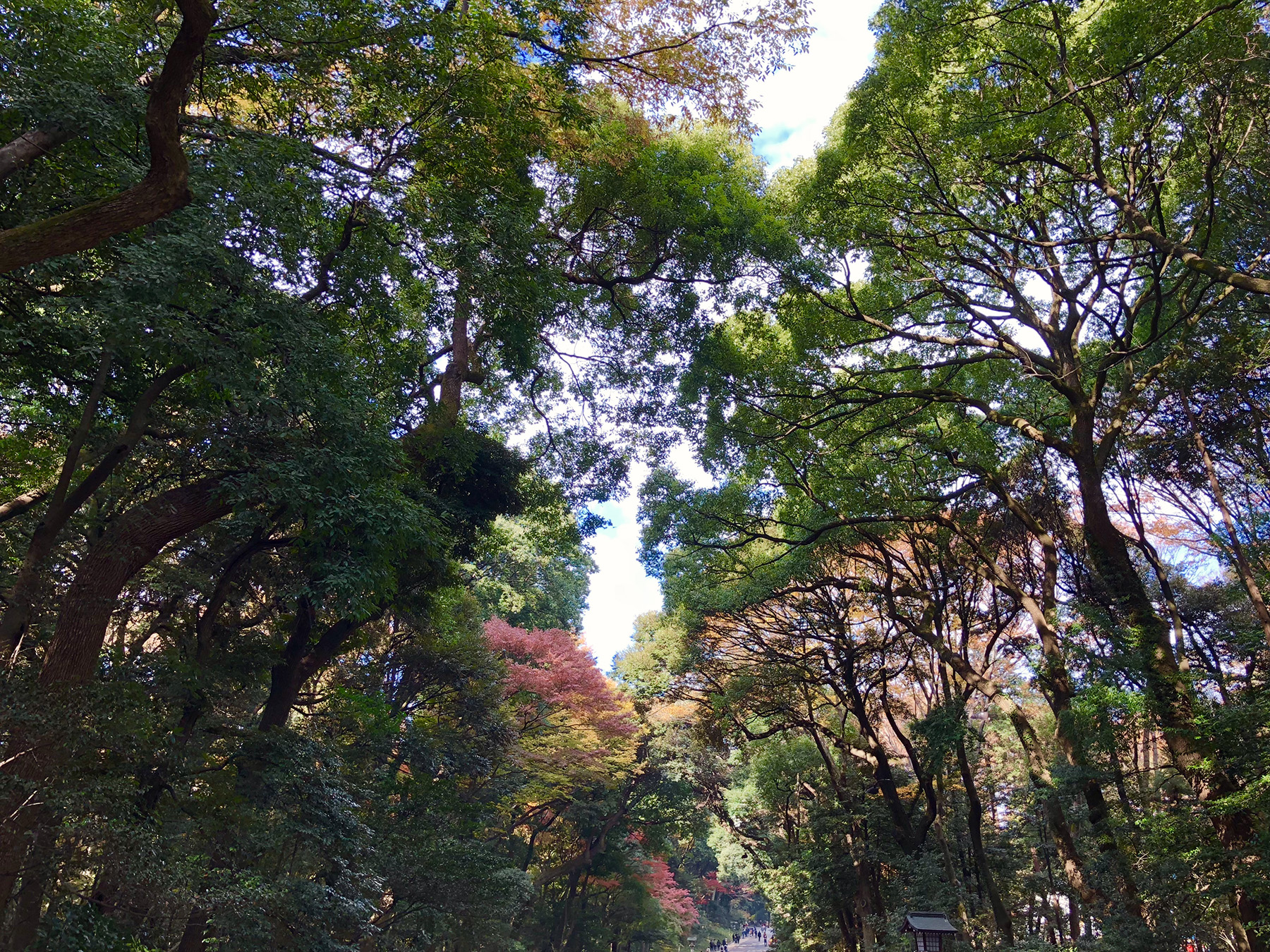
Oddly enough, Japan celebrates the United States Thanksgiving holiday. It’s something the US brought over and eventually took hold, though you won’t find any turkeys or pilgrims in Tokyo. Instead, Thanksgiving is a celebration of workers throughout the country, similar to Labor Day. You won’t find parades or parties celebrating Thanksgiving, and many stores are closed. Thanksgiving in Japan is more of a long weekend than a true national celebration.
Winter in Tokyo may be the best deal with cheap prices, holiday cheer, and relatively mild weather
If you want to enjoy Tokyo and don’t mind relative cold temperatures that hover between 25-45 degrees Fahrenheit, you’ll find the best deals around. Did I mention that the Japanese also love Christmas? If you enjoy looking at holiday lights, Christmas trees, and general cheer that comes with the holiday you should know Tokyo goes all out. It’s not a religious holiday for the Japanese, but it meshes very well with their tradition of gift giving and celebrating together.
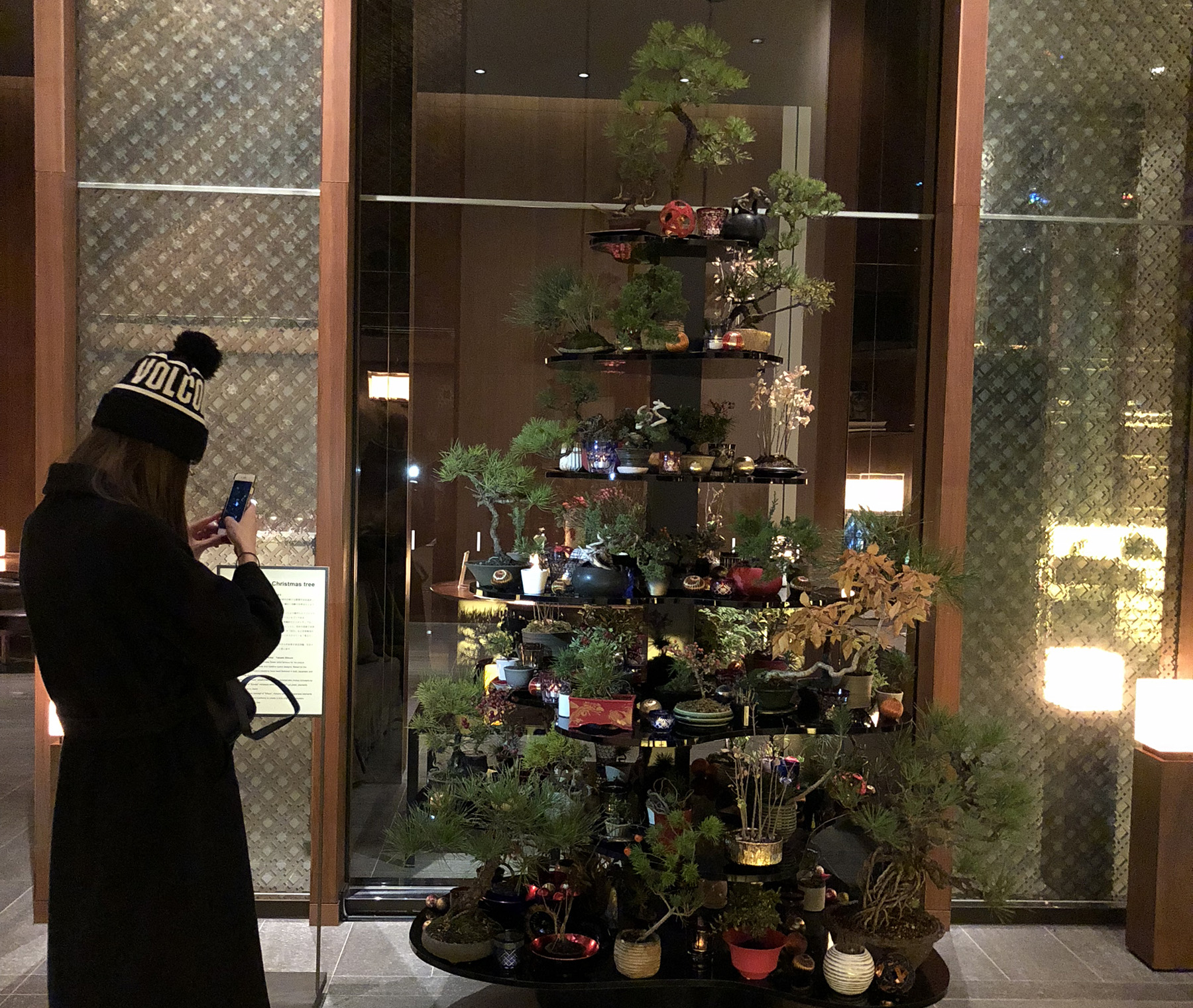
The temperatures are cold, but easily bearable considering the density of the city. When considering where to stay in Tokyo during the winter months, think about locations that are closer to the major city centers. Ginza, Roppongi, and Tokyo Station offer large indoor areas connected to malls, department stores, and underground passages with english signs to help you navigate. After all, you’ll want to do some shopping to take advantage of holiday sales and bring back some authentic Japanese gifts like a beautiful Japanese Chef knife. It can mean spending less time in the cold air, though you’ll seldom feel stinging wind or quick drops in temperature thanks to the warmth of the city infrastructure.
Where to Stay in Tokyo: The Airbnb
I love Airbnb. I’ve used it all over the world, and almost always enjoyed the experience. Asia in general can be a bit trickier when it comes to Airbnb. Sharing your home with strangers from the west isn’t always at the top of every Japanese to do list, but you will find many highly rated entire apartments available for between US$60 – $150 per night. These small Japanese style apartments have a few quirks you should be aware of.
Tiny size. Tokyo Airbnb apartments are small. Really really small. There’s usually room enough for a twin bed, and some of the more expensive units have multiple beds. In addition to a bed you may find a small sitting area, a refrigerator, and a bathroom. When deciding where to stay in Tokyo based on value these units can’t be beat. Besides, you won’t be spending much time indoors anyway!
Quiet buildings not suitable for parties or guests. Though the tiny apartment size is a detractor to having people over, you’ll find that Japanese apartment buildings are so quiet you can hear a pin drop. You may even wonder if anyone is living in the building at all. That’s due to Japanese manners, which typically favor extreme levels of quiet in both public and private spaces.
Temperature control is minimal. Summers can be hot, and winters can be cold. You’ll find acceptable controls that keep things manageable, but you won’t find truly ice cold air conditioning or furnace-strength heat.
Self-contained bathroom units. The shared bathroom used to be more commonplace, but now most units have been updated to include private bathrooms. That said, the units are very small, with the toilet often sharing space with the shower. Everything is usually functional and modern, but cramped.
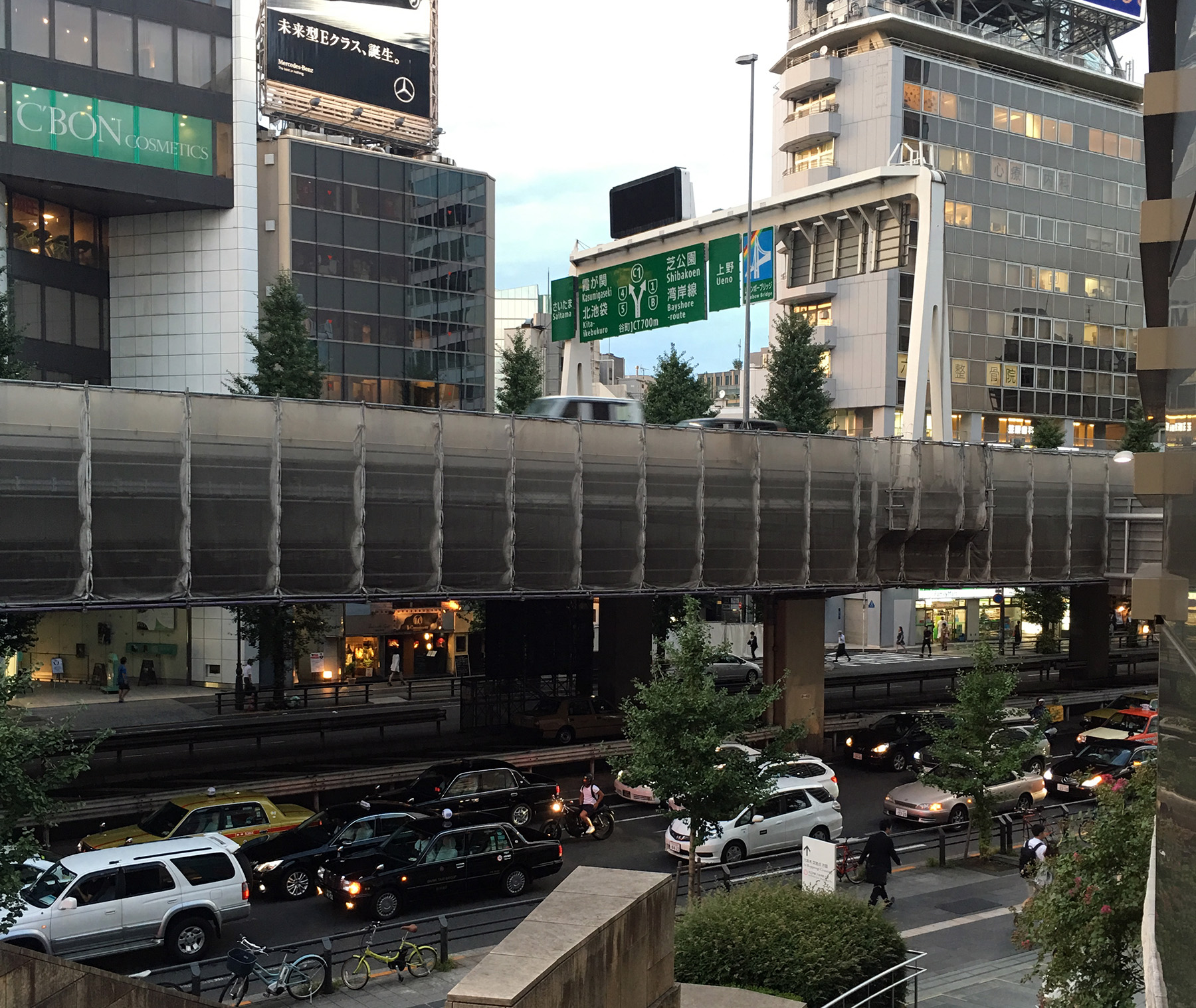
I’ve stayed in several Tokyo Airbnb apartments, and overall it’s a great way to experience the city. Many hosts will also provide you with free pocket wifi. These small units allow you to stay connected to the web anywhere in Tokyo without a Japanese phone. Renting a pocket wifi unit can cost US$10-20 per day, so it’s a great added value. You’ll also find most Japanese hosts provide toiletries like shampoo and soap, though convenience usually appear every few hundred feet.
Airbnb apartments in Tokyo are almost always centrally located, and you won’t find value in staying outside the city once you factor in commute times and costs. Try the Minato ward in Tokyo, sometimes called Minato City. It’s centrally located, provides excellent access to parks, shopping, and other sightseeing, and has a ton of restaurants and nightlife available. Prices can vary, but are some of the best values in Tokyo for Airbnb stays.
Where to Stay in Tokyo: The Luxury Hotel
There’s nothing in the world quite like Japanese hospitality. They even have a special word for it with no direct translation in English: Omotenashi. If I had to try, I would probably liken it to the golden rule: Treat others as you would wish to be treated. It also means that hospitality staff in Tokyo including hotel workers, taxi drivers, and department store cashiers make incredible efforts without expecting anything in return. After all, there’s no tipping in Japan!
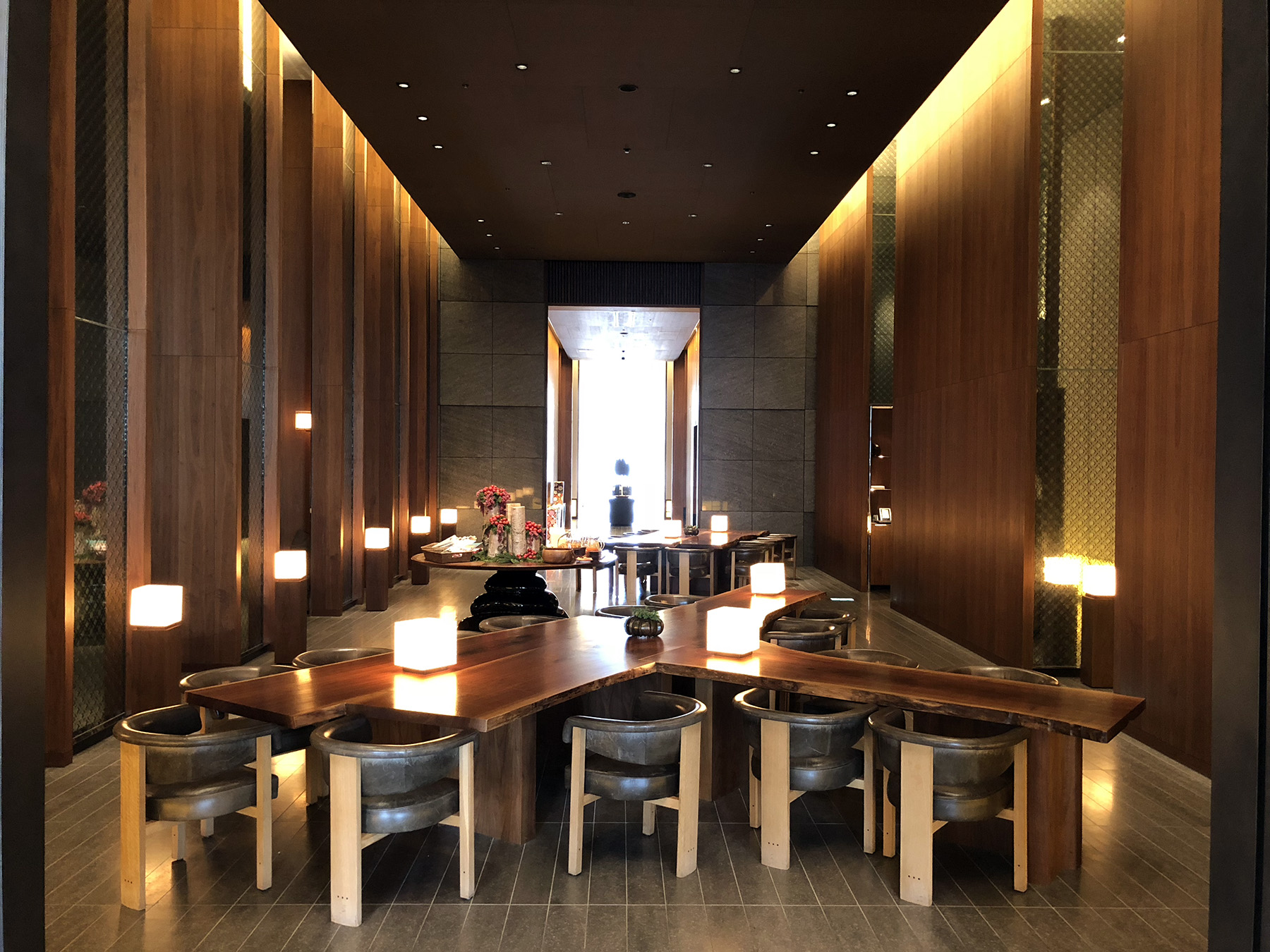
Experiencing Japanese hospitality at its finest should start with a stay in one of hundreds of four and five star hotels in Tokyo. While you won’t find the cheapest pricing compared to Airbnb apartments, you will find that it’s very close, typically in the US$90-200 per night range. When you experience what you get for that price you’ll find it hard to return to hotels in other countries. Here’s a few details on what you can expect:
Extremely helpful hotel staff. The staff in most hotels will help you with nearly any request, from securing tickets or making recommendations on dinner. It’s one of the most important concepts about Tokyo that can trip people up when trying to plan alone: Japanese culture is of inclusion by recommendation. That means you may find it difficult or impossible to secure a dinner reservation, where a hotel concierge can call and make it happen with what seems like little effort. Depending on what you want to do it may be the key element that makes or breaks your trip, so it’s critical to factor in when deciding where to stay in Tokyo.
Many additional services available for extra fees. Tokyo hotels can take care of your laundry, offer access to pool and fitness facilities, or have a traditional Japanese breakfast ready and waiting. You should be warned: While luxury hotels in Tokyo are inexpensive compared to western hotels of the same caliber, the extra services can be very expensive. For example, I recommend getting food to go from a fine department store (Japanese department stores often have luxury grocery stores in their basement levels) rather than ordering room service.
Super clean rooms with a daily refresh. You will come back to your room after a long day to find your clothes have been neatly folded and stacked, your amenities have been refreshed, and the bed turned down perfectly. It’s all about the details for Japanese hotels, and you’ll always look forward to coming home to a perfectly organized life.
A lively bar scene. Evening hours in Tokyo’s many luxury brand hotels get exciting with live music and a cosmopolitan crowd from all corners of the world. Most hotels have a late night food option as well, so you can enjoy your Japanese whiskey with a snack. Part of the enjoyment of the Tokyo bar and nightlife scene is also enjoying the view: A sea of pulsing, red lights as far as the eye can see. It’s a great way to contemplate the scale of the city, or just spend an hour sipping cocktails.
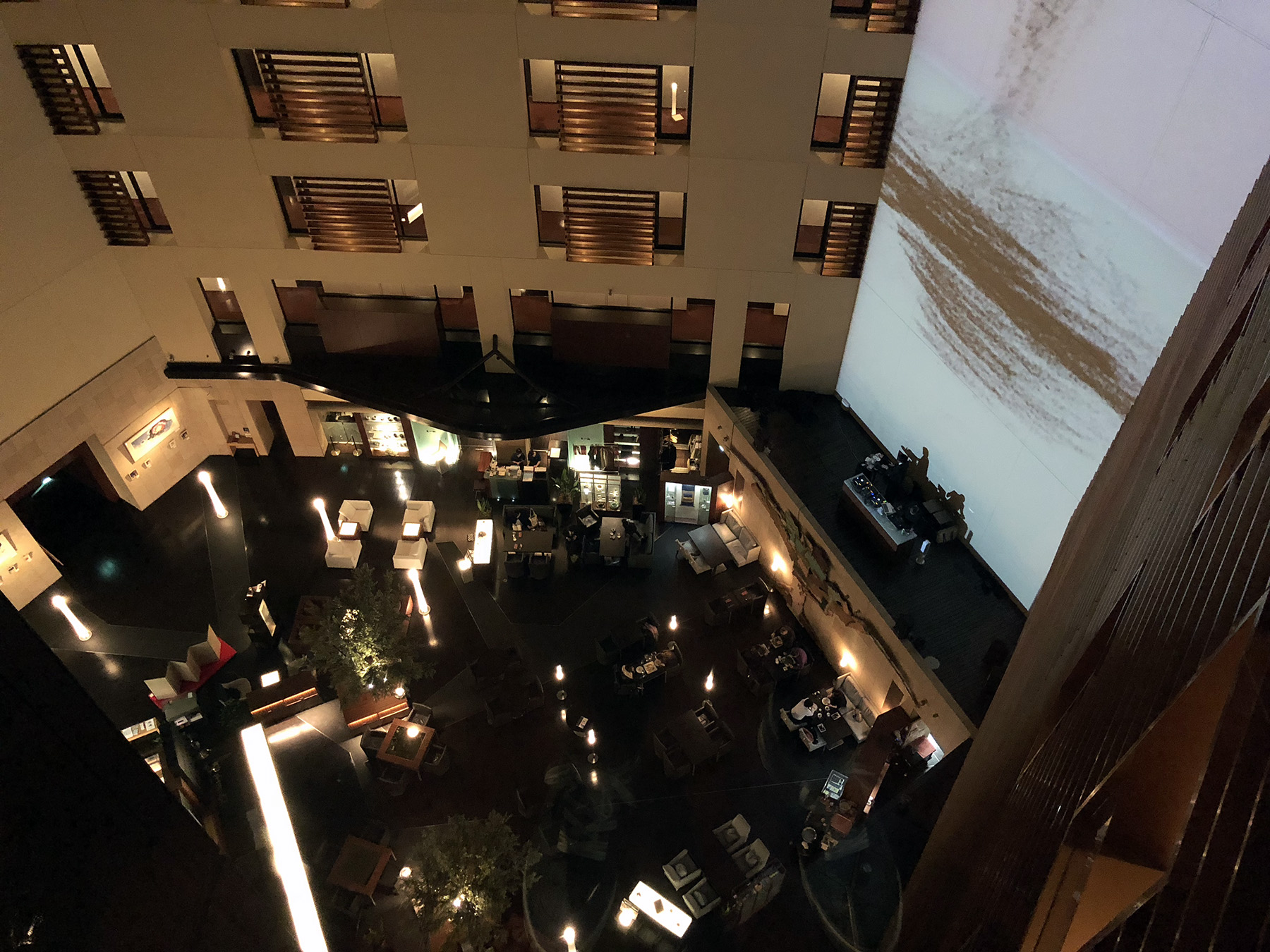
Hotels in Tokyo are everywhere, but the better ones tend to be near the city center in wards like Shinjuku and Minato. Select a ward that offers more of what you are looking for from your trip to Tokyo. Want nightlife? The best bet is Roppongi in Minato. Looking for a 5th Avenue shopping experience? Ginza is your spot. Technology like the latest headphones, cameras, and video games? Akihabara has it all.
When deciding where to stay in Tokyo, don’t be afraid to try hotel brands you don’t recognize. Tokyo has the traditional options such as Prince and Hyatt Hotels, but they tend to be priced higher than less common brands. Book through your regular website like Hotels.com or TripAdvisor and vet for top ratings. As long as you are sticking to higher end hotels you can’t go wrong.